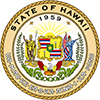The following are covered benefits under the QUEST Integration.
Primary and Acute Care Services
Behavioral Health Services
Additional Behavioral Health Services for Children
Additional Behavioral Health Services for Adults
Long-Term Services and Supports
Primary and Acute Care Services – Physical Health
- Diagnostic tests to include but not limited to:
- laboratory tests,
- imaging services, or
- other diagnostic tests;
- Dialysis;
- Durable medical equipment, including visual appliances and medical supplies to include orthotics and prosthetics;
- Emergency medical services as defined in Section 40.740.1.e to include medically necessary ground and air (fixed wing and air) ambulance;
- Early and Periodic Screening, Diagnosis and Treatment (EPSDT) services for individuals under age twenty-one years who require benefits for which either coverage has been exhausted or not described under the State Plan;
- Habilitation services;
- Hospice services;
- Immunizations;
- Inpatient hospital days for medical and surgical care to include:
- post-stabilization services,
- maternity and newborn care, or
- sterilization and hysterectomies;
- Non-emergency transportation;
- Outpatient hospital procedures or ambulatory surgical center procedures to include but not limited to:
- sleep laboratory services and
- surgeries performed in a free-standing ambulatory surgery center (ASC) and hospital ASC;
- Outpatient medical or behavioral health visits to include:
- family planning,
- fluoride varnish,
- home health,
- medical services related to dental needs,
- nutrition counseling,
- other practitioner services,
- physician services,
- podiatry,
- post-stabilization services, if applicable,
- preventive services,
- smoking cessation,
- urgent care, and
- vision and hearing services;
- Pregnancy-related services
- Prescription drugs; and
- Rehabilitation Services both inpatient and outpatient to include cognitive rehabilitation services.
Behavioral Health Services
- Inpatient Psychiatric Hospitalizations to include:
- psychiatric services, and
- substance abuse treatment services.
- Ambulatory Mental Health Services that includes crisis management;
- Medications and Medication Management;
- Psychiatric or psychological evaluation and treatment;
- Medically necessary alcohol and chemical dependency services; and
- Methadone management services.
Additional Behavioral Health Services for Children
Children/youth less than twenty-one (21) years old with a diagnosis of serious emotional behavioral disorders are eligible for additional behavioral health services within the Department of Health, Child and Adolescent Mental Health Division (CAMHD) Support for Emotional and Behavioral Development (SEBD) program.
Additional Behavioral Health Services for Adults
Adult members age twenty-one (21) years of age or older with a diagnosis of serious and persistent mental illness (SPMI) who are eligible for additional behavioral health services shall receive those services through the Community Care Services (CCS) program.
Long-Term Services and Supports (LTSS)
The health plan shall provide these services to members who meet appropriate level of care. Long-term services and supports (LTSS) are divided into two categories:
Services must be applied for and are available based on physician’s evaluation of required level of care.
- Home and Community-Based Services
- Adult day care;
- Adult day health;
- Assisted living services;
- Community Care Management Agency (CCMA) services;
- Counseling and training;
- Environmental accessibility adaptations;
- Home delivered meals;
- Home maintenance;
- Moving assistance;
- Non-medical transportation;
- Personal assistance services –Level I and Level II;
- Personal Emergency Response Systems (PERS);
- Residential care including E-ARCH and CCFFH;
- Respite care;
- Skilled (or private duty) nursing; and
- Specialized medical equipment and supplies.
- Institutional Services
- Acute Waitlisted ICF/SNF;
- Nursing Facility (NF), Skilled Nursing Facility (SNF), or Intermediate Care Facility (ICF)
- Subacute facility services.




